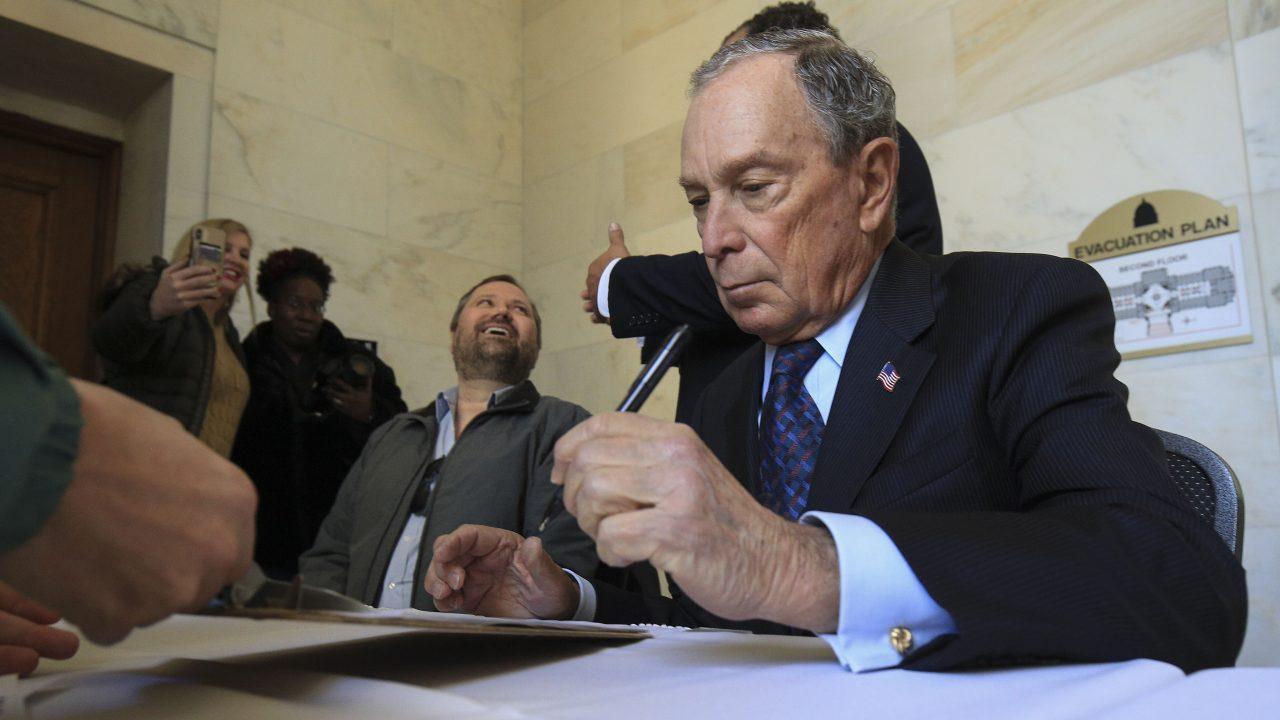Bloomberg's unprecedented spending spree tops $400M ahead of Super Tuesday
Spending report far surpasses the amounts spent and raised by other contenders for the Democratic nomination
Mike Bloomberg has spent an unprecedented $409 million of his massive personal fortune on his bid to become the Democratic presidential nominee in the three months since he launched his campaign, according to Federal Election Committee filings released on Thursday.
The spending report, which covers the period when Bloomberg announced his candidacy through Jan. 31, 2019, far surpasses the amounts spent and raised by other contenders for the Democratic nomination.
Campaign officials said a portion of the money went toward building up Bloomberg's operation, which had 1,000 employees at the end of the filing period. The payroll has since grown to 2,100. In January alone, the campaign spent $220.6 million, with most of the money going toward television ads.
SANDERS, BUTTIGIEG ARE WINNING THE 2020 CAMPAIGN FUNDRAISING RACE
The 78-year-old billionaire, one of the richest people in the world, has come under criticism for using his massive $60 billion fortune to fund his campaign. Political opponents, including other Democrats and Trump, have accused him of trying to buy the election.
But his spending feat has begun to pay off: The Republican-turned-Democrat surged to third nationally this month, according to an average of polls by RealClearPolitics. He still trails frontrunner Vermont Sen. Bernie Sanders and former Vice President Joe Biden.
It also secured him a spot on the Democrat debate stage in Nevada on Wednesday night, where he bore the brunt of attacks from progressives and moderates alike.
BLOOMBERG CAMPAIGN ZEROES IN ON SANDERS, CASTS OFF BIDEN
Bloomberg entered the race too late to participate in the four early-voting states and is instead concentrating his attention, and vast fortune, on the 14 states that will cast their ballots on Super Tuesday, March 3.
Nearly half of his spending has been poured into Super Tuesday and Rust Belt states.
Candidates need 1,991 delegates to become the Democratic nominee; a combined 1,344, or about one-third of the total, will be allotted on Super Tuesday alone.




















